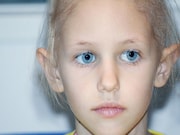Increased risk of on-therapy relapse, relapse after completing therapy versus children with ALL
MONDAY, Oct. 1, 2018 (HealthDay News) — Adolescents and young adults (AYA; aged 15 to 39 years) with acute lymphoblastic leukemia (ALL) have increased risk of on-therapy relapse and relapse after completing therapy compared with children with ALL, according to a study published online Sept. 27 in Cancer Epidemiology, Biomarkers & Prevention.
Julie A. Wolfson, M.D., from the University of Alabama at Birmingham, and colleagues conducted a retrospective study involving ALL patients diagnosed at age 1 to 39 years (AYA, 93; child, 91) and treated at a single institution during 1990 to 2010. Relapse risk was assessed during therapy and after therapy completion.
The researchers found that compared with children, AYA experienced an increased risk of on-therapy relapse (hazard ratio, 10.5). In multivariable analysis restricted to AYA, independent predictors of relapse included lack of clinical trial enrollment and non-white race/ethnicity (hazard ratios, 2.6 and 2.2, respectively). AYA experienced an increased risk of relapse after completing therapy compared with children (hazard ratio, 7.7); longer therapy protected against relapse (months of maintenance: hazard ratio, 0.7; months of consolidation: hazard ratio, 0.8).
“These findings highlight the importance of clinical trial enrollment and therapy duration (maintenance, consolidation) in ensuring durable remissions in AYA ALL,” the authors write. “Future studies encompassing health care delivery, treatment, and biology are needed.”
Copyright © 2018 HealthDay. All rights reserved.








